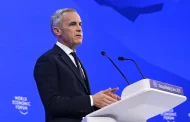Calm and Reconcile Nigeria Instead
For the third time in four months, (See “Buhari’s Only Way Out, October 21st, 2016; “OBJ Vs Buhari: One Way Out of a Historical Conflict, November 28th, 2016), this newspaper would advise President Buhari to, instead of phoning select persons from London as a way of fighting inferences of terminal impairment, go for the option of a Government of National Unity now in Nigeria. Nigeria has been cracking at every point that freewheeling majoritarianism is simply not in a position to calm the country. To overcome this point in the absence of elite consensus but without disrupting the status quo, a Government of National Unity where all the major political parties are part of government at the federal and state government cabinets is not only desirable but urgent. That is, sufficiently inclusive executive arm of government at the two levels such that each level can confront and resolve the myriad crises and siege in which Nigeria is swimming now.
Confronting the crisis over and above the limits of the formalities around power or governance is morally and politically called for. Nigeria has been swindled for long by that falsehood that something or some people are daily working hard, doing that which would soon get the country out of the woods. The problems are, however, structural and no such magic is going to happen without something more innovative in the authoritative process. Already, the country is sliding by the day, not just globally but even in Africa where, by its population and endowment, it ought to have been the leader.
It is time for Nigeria to break the barriers of formalism to call back to service some of this country’s most brilliant, most balanced, most people oriented and most patriotic elements. Under such an expanded and very inclusive cabinet, followed by an atmosphere unencumbered by political differences, divisive sentiments and rhetoric, Nigeria should be able to remap her numerous challenges more critically. Hopefully made up of persons who are not constrained by immediate power agenda, such a cabinet equally provides a platform for inter-subjective conversation that can prepare the ground away from the current animalistic ‘do or die’ politics in 2019. Other than this option of a Government of National Unity, it is difficult to see the emergence of anything serious and purposeful in 2019 and afterwards.
Nigeria has reached a point to worry about its democratisation. How else can it be said when only very few of the 36 state governments are honouring salary obligations to their workers? As things are, it is criminal in Nigeria to fall sick. While health service delivery at home is so poor, only absolutely very few can troop outside to take medical care of themselves. The unemployment level is frightening just as every other thing. Nobody in Nigeria today can successfully pretend that things are normal or working well. Almost everyone is instinctively testifying to a national air pervaded by despair, bitterness, acrimony and sense of siege. The quantum of each of these would suggest that democracy as a cure has meant a worse cure than the original ailment. But it is not the democratic pill that is the problem but the unique crisis of mission of the Nigerian elite. It is such that whichever fraction of it takes or controls power at the federal level quickly walks into a stalemate, almost without exception.
If we limit evidence for this assertion to the Fourth Republic, we can see that General Olusegun Obasanjo who inaugurated it barely escaped impeachment halfway into his first term. The storm against him was such that he had to fight to get his second term. The usually conformist National Assembly revolted against him on ‘Third Term’. Alhaji Umaru Yar’Adua, his successor, was worse, not because of poverty of performance but because he came to power sick, the management of which became a complicated, divisive issue, with particular reference to succession. Dr Goodluck Jonathan who succeeded him ran into more stormy waters, ending up being defeated in the 2015 presidential election but only for General Muhammadu Buhari who did so to walk into stormier waters and stalemate. In other words, General Buhari’s second coming has not been an exception to this rule. Instead, his has been aggravated by presidential ill-health and long absence. As such, no fraction in power has been able to form consensus on what is most urgent for the nation and what can come up later. That has always left the country perpetually groping because governing a highly pluralistic polity as Nigeria without an elite pact which is understood and held to be sacrosanct by all can be an invitation to such groping.
Meanwhile, economic, political and security crises are mounting. The insurgency in the north east remains a problem, particularly if the reported arrest of Boko Haram commanders in Kogi State recently is anything to go by. Kaduna State alone has two conflicts, each signposting the difficulty of the times. Benue has in its bowel the seeds of a different challenge, especially if nothing more than our fancy attitude to managing conflict is done over there. A peculiar pattern of kidnapping rages in Lagos while militancy in the Niger Delta and the south east present their own peculiar stress on a united and stable Nigeria.
The totality is that something is missing in Nigeria now. Nigeria at the moment has no soul. There is nothing on the ground to suggest that the country can dramatically recover this soul. Neither President Buhari’s resumption of duties nor Vice-President Yemi Osinbajo’s exciting cerebral governmentality would constitute a magic wand. Yet, the executive arm of government is that which defines national priority and mobilises as well as allocate resources to such priorities. For democracy to create prosperity rapidly rather than this fairy tale of employing few thousands when the figure of unemployed is in millions, develop Nigeria and work for everybody, the executive arm must be a head ahead of all other institutional components of the democratic order. Where this is not the case, something more innovative, if not radical, must be contemplated and carried out to save democracy and guarantee the democratic order. At the present rate, the risk of losing even the minimum gains, especially in the anti-corruption war, is real. This is because although people do not live by bread alone, that does not make bread dispensable. A Government of National Unity makes eminent sense in this context because no single political party in Nigeria today has the conceptual and programmatic tools to confront the challenges with rapid transformation in view. The president can do this even from London.




























